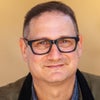Study Shows People Who Sleep Late May Die Earlier Night owls who wake up late have a 9% higher chance of dying sooner than early birds.
By Jonathan Small Edited by Mark Klekas
Key Takeaways
- A Finnish study indicates a higher risk of death for 'night owls.'
- The study tracked nearly 23,000 Finnish twins for 37 years.
- Bad habits associated with staying up late may contribute to health risks.
A new study may validate the old saying, "Early to bed and early to rise makes a man healthy, wealthy, and wise."
Researchers in Finland found that people who consider themselves "definite night owls" face a 9% increased risk of dying earlier than those who go to bed and wake up early.
The reason has less to do with when they sleep and more with what they do when they're not sleeping. Night owls tend to develop unhealthy habits that lead to premature deaths.
"The increased risk of mortality associated with being a clearly 'evening' person appears to be mainly accounted for by a larger consumption of tobacco and alcohol," Christer Hublin, a researcher from the Finnish Institute of Occupational Health in Helsinki, said in a statement.
Related: The No-Excuse Approach to Sleep and Work Performance for BIZ Experiencess
What researchers discovered about night owls
The far-reaching study published in Chronobiology International looked at the health data of nearly 23,000 Finnish twins for 37 years.
Researchers asked both men and women to pick four possible statements about themselves: "I am clearly a morning person"; "I am to some extent a morning person"; "I am clearly an evening person"; "I am to some extent an evening person."
In 2018, they followed up with the study participants to see if any of them had died, looking at their daily alcohol consumption, smoking habits, and sleep duration.
Over 8,700 of the 22,976 participants had died, with those who identified as evening types more likely to die than those who did not. They also consumed more alcohol and cigarettes.
"We have known for a long time that those who have an evening type preference are more likely to be heavier drinkers, have alcohol use disorder, and are also more likely to use other substances including tobacco," Dr. Bhanu Prakash Kolla, a sleep medicine specialist in the Center for Sleep Medicine at the Mayo Clinic in Rochester, Minnesota, told CNN.
Related: Here's Why You Should Drink Coffee Before You Nap
Lack of sleep not a factor
Everyone has a sleep chronotype—a sleep-wake schedule influenced by genetics, age, and lifestyle. People generally fall into three main chronotypes: early birds, night owls, and hummingbirds (who balance sleeping early and late).
Some studies have shown that early birds achieve better grades at school and are more energetic than night owls.
However, Finnish researchers stress that the sleep chronotype of the participants in their study was not a factor in their mortality.












